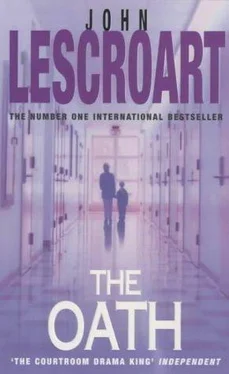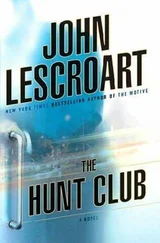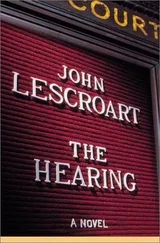"In other words," Glitsky clarified, "drugs the company didn't approve."
"It wasn't that so much," Kensing explained. "The drugs I prescribed were fine. In fact, they were better." Kensing drew a paper towel, already damp with sweat, across his forehead. "The company's policy is that we physicians prescribe drugs from the formulary, that's all."
"And you made it a habit not to use this list?"
"Not a habit. When I thought it was appropriate." He felt he needed to explain. "The generics are not always exactly the same, chemically, as the proprietary, so they're not always as effective. Or they'll have other problems."
"Like what?"
"Any number of things. You'll have to take it twice as often, or it might have undesirable side effects, like indigestion. So in some cases, or when I'd had a bad experience with a certain generic on the formulary, I'd go with the proprietary."
"And Parnassus has a problem with this?"
He shrugged. "It costs them money."
"Could you explain that?"
"Well, the way it works at Parnassus is that most patients have the same copay, I think it's ten dollars, no matter what the drug costs. So if a proprietary costs thirty dollars and the formulary's generic costs ten, the company loses twenty dollars for every proprietary prescription that it fills."
"And you would prescribe these proprietary drugs regularly?"
"When it was appropriate, yes. My job is to save lives, not the company's money."
"And did you have more words with Mr. Markham about this practice?"
By now, Kensing's hands were visibly shaking. He took them off the table, put them into his lap. For the past grueling hour or so, he wished that he'd listened to his lawyer and taken his advice not to talk to these men. But having started the interview, he didn't know how to go about trying to stop it. Finally, he tried. "If you don't mind, I'd like to be excused for a moment," he said.
But Glitsky wasn't inclined to let him go to the bathroom, even if only to gather himself. "In a bit," he said crisply. Then repeated his question. "Did you have words with Mr. Markham on this drug issue?"
"No, I did not. We did not speak."
"Since when?"
"About two years ago."
"Two years ago? And yet the Baby Emily affair was in the past few months and you said you spoke to him then."
Kensing wiped his whole face with the paper towel. "I thought you meant about this prescription issue. When we talked about that."
***
When the police finally packed up their equipment and left, Kensing sat shaking on his living room couch for a long while. Eventually, he decided he'd better call Hardy, see about some damage control. Outside, it had nearly come to night, and the rain continued to pour down his front window.
Hardy was still at his office, trying to catch up on his other clients' work. Kensing then told him what had happened, that the interview had been really, really unpleasant, a mistake after all. "I think they must really believe I had something to do with this," he concluded.
There was a long silence, and when it ended, Kensing was completely unprepared for Hardy's fury. "Oh, you think so, Doc? The lieutenant in charge of homicide interrogates you for two hours about a murder that's on the front pages every day, that might be connected to a brutal murder of a whole family, and you've got motive, means, and opportunity and you think maybe, just maybe, they might think you're a righteous suspect. You studied anatomy, didn't you, Doc? Does everybody else have their head up their ass or is it just you?"
Kensing just sat there looking at the receiver in his hand. He felt a rush of blood to his head, and then physically sick. He thought he might throw up. His knuckles were white on the phone. His throat was a barren desert, constricted. After a few more seconds, unable to get a word out, he hung up.
***
When Hardy called Kensing back twenty minutes later to apologize for his outburst, he didn't find himself fired, as he'd half expected. Instead, his client apologized back to him, ending with his observation that Glitsky "might really think I killed Tim."
About time he got that message, Hardy thought. But he only said, "It'd be smart to assume that." But he had called his client back for another reason besides the apology. If he was still defending the good doctor, he had some pertinent questions to ask him. "Eric, I went by Portola today and talked to some nurses there. What do you think are the odds that the overdose was accidental?"
"Basically, in this case, zero. Why?"
Hardy ran down Rebecca Simms's theory about the occasional inadvertent overdose. When he'd finished, Kensing repeated what he'd said before. "No. It wasn't that."
"How do you know?"
"I was there. Markham wasn't even on potassium. He was stable. Relatively, anyway."
"So," Hardy asked simply, "what's that leave? Who else had access to him?"
"Carla, I suppose, technically. Maybe Brendan Driscoll earlier. Ross, a couple of other doctors. The nurses."
"How many nurses?"
"You'd have to check the records. I don't know. There's usually two, sometimes three. I think there were two." The enormity of it seemed to hit him for the first time. "You're saying one of those people killed him, aren't you?"
"That's what it looks like, Eric." He refrained from adding, "Either one of them or you."
"Jesus," Kensing said weakly. "So what do we do now?"
Hardy hesitated for just an instant. Trace awkwardness remained from the earlier outburst. But he went ahead. "This may seem a little prosaic after what you've been through tonight, Eric. But before things go any further, we've got to talk about my fees."
"Can't you just bill my insurance?"
Neither man laughed.
Hardy waited out a reasonable silence, then said, "You might want to get where you can be comfortable. This is going to take a while."
***
Glitsky wanted to debrief the car police after the Kensing interrogation at his condo, so although it was late, he drove back downtown. Now he was back at his desk, waiting for Fisk and Bracco so they could talk about what, if anything, they'd learned, how they were going to proceed on this investigation. Outside his door, five of his other inspectors were hanging around catching up on their paperwork. Someone had brought in a pizza, the smell of which was driving Glitsky crazy since he was supposed to go light on the food groups that used to be his favorites, which included cheese and grease.
What was keeping those guys? He'd thought they were right behind him. Finally he heard some laughter out in the detail and got up to check it out. He thought it entirely possible that somebody had Krazy Glued Fisk to his chair.
Glitsky gave up the good fight and grabbed a slice of pizza from Marcel Lanier's desk, and put half of it in his mouth before he could change his mind. When he had swallowed enough of it so that he could talk, he asked what was so funny.
Lanier was a veteran of the detail, and he leaned back in his chair with his feet crossed on his desk. His hands were linked behind his head. "Just the DA's office sent up another crazy today, and I finally figured out a way to help him without sending him to the FBI."
Glitsky knew that a regular feature of life in the city was the abundance of bona fide lunatics-folks who generally lived on the streets and heard voices, thought they were possessed, communicated with aliens. Occasionally, one of these people would take their concerns to the public defender's office, which would in turn direct him to the police station downstairs in the hall. There, the desk would nod sympathetically and forward him to the DA's office, which always sent him to homicide. Most of the time, homicide sent him over to the FBI, where God knew what happened to him.
Читать дальше












